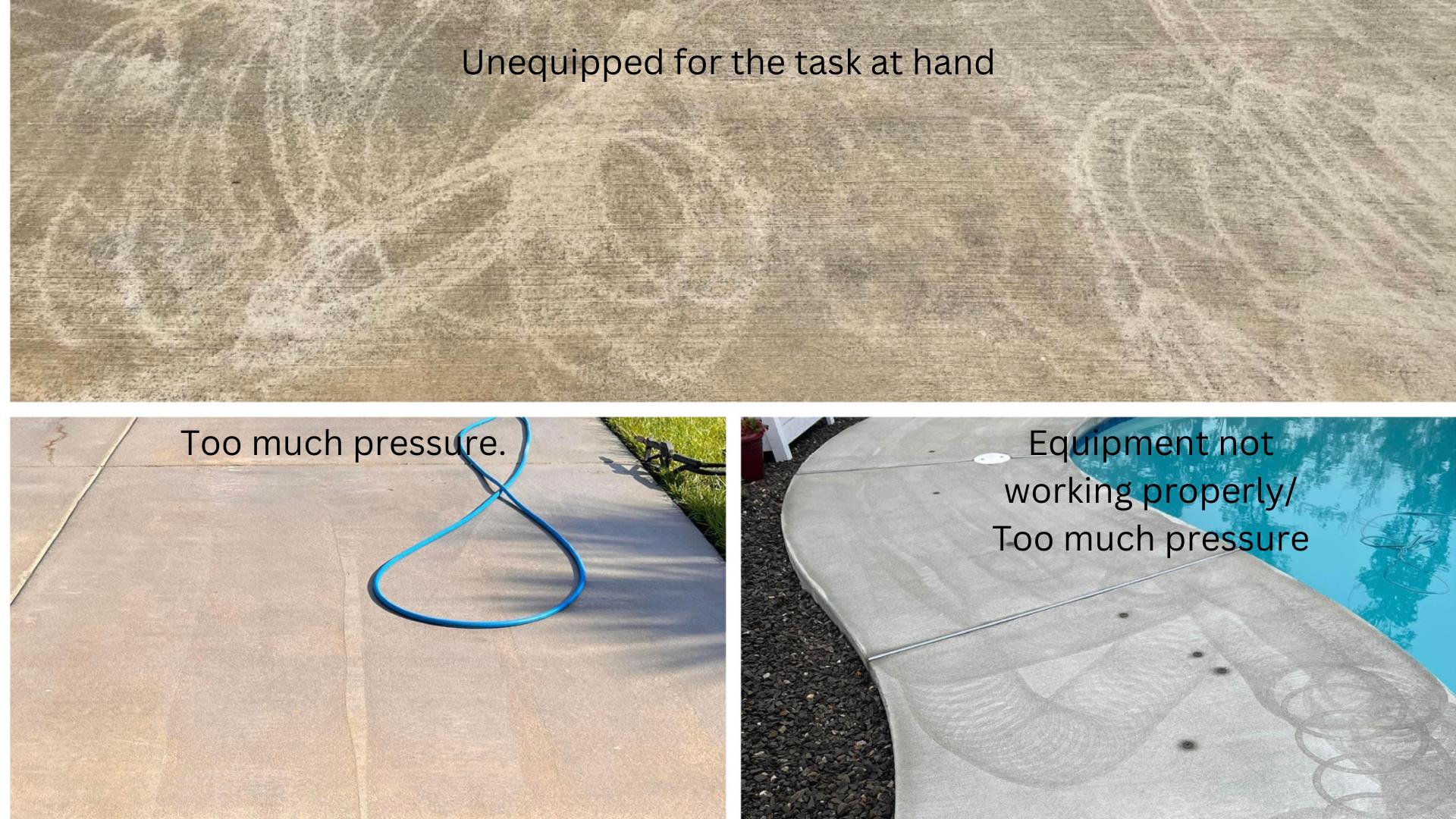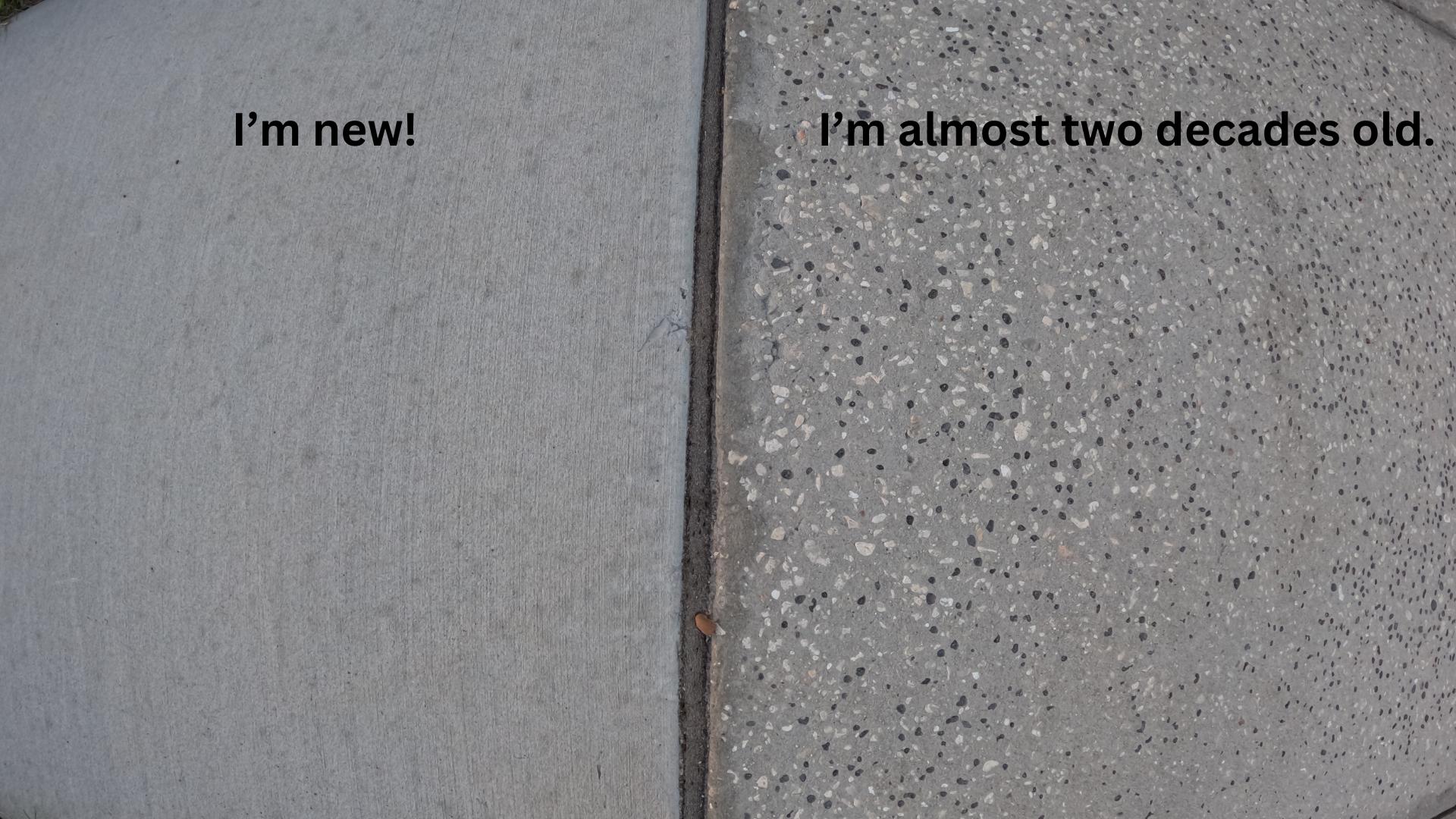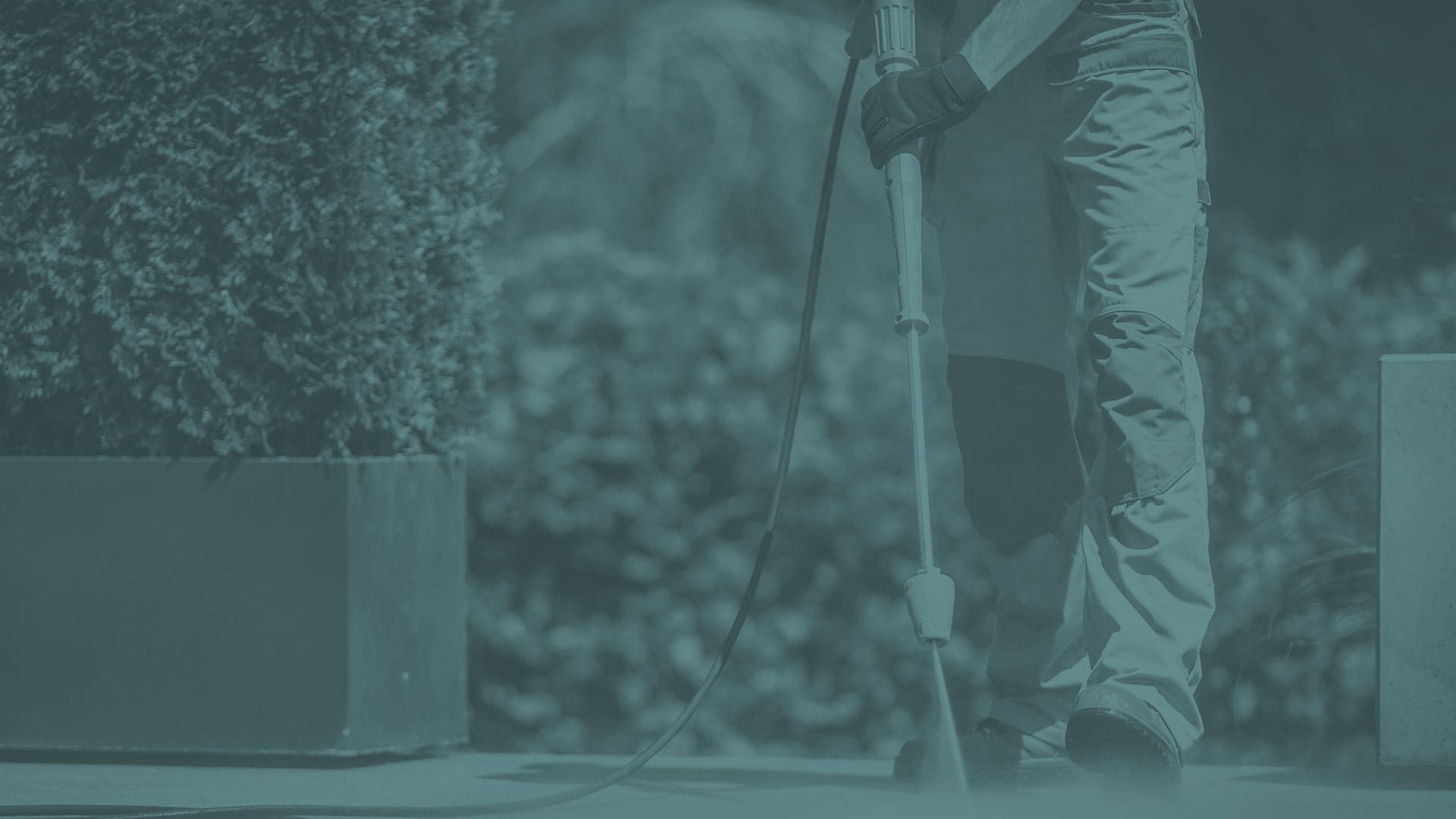FAQ: Can Pressure Washing Damage Concrete

The short Answer is yes! Concrete is a composite material comprised of cement, water, and aggregates such as sand and gravel. When these elements combine and solidify, they create a sturdy mass with great surface hardness.
The Role of High-Pressure Water Jets
High-pressure water jets, the primary tool of a pressure washing professional, are renowned for their effectiveness in removing dirt, grime, and stains from surfaces. However, if applied recklessly or at excessively high pressures, the pores within concrete can become excavated and can continually grow larger. Over the years, this will lead to cracks and other structural issues.
Prevention and Care
To minimize the risk of damage, it's crucial to approach concrete pressure washing with caution. Adjusting pressure settings, selecting appropriate nozzle types, maintaining a safe distance from the surface, and ensuring equipment is in good working order are all essential steps. A trained professional should know what pressure their machine is delivering, and should make adjustments as necessary to mitigate these issues. In my personal opinion, Softwashing is the appropriate method for cleaning concrete in its first few years of life!
Old vs. New Concrete: Understanding the Contrast

In the world of pressure washing, it's crucial to recognize that not all concrete is created equal. When it comes to concrete surfaces, there's a notable difference between older, well-set concrete and freshly poured concrete. This contrast is essential to understand, as it significantly impacts how we approach pressure washing if at all. If a homeowner wants to preserve the neat and fresh look of their driveway, then may make it a habit to pressure wash it multiple times a year. However, this could in fact be causing damage if not done properly.
The Durability Factor: Old Concrete
Older concrete, having had the time to cure and harden over the years, is far more robust and less susceptible to damage. Its structure has matured, and it can withstand higher pressures and more aggressive cleaning methods. When dealing with old concrete, we can be more assertive in our pressure washing approach to effectively remove embedded dirt, stains, and organic growth.
Newly Poured Concrete: Handle with Care
On the flip side, freshly poured concrete is a completely different story. While it might look solid, it hasn't had the chance to fully cure and reach its maximum strength. In fact, new concrete can be significantly softer and more vulnerable in its early life. Applying high pressure to new concrete is like asking for trouble—it's a delicate material that demands a gentle touch. Rushing into pressure washing with new concrete can result in surface erosion, unsightly etching, and in severe cases, structural damage.
The Rule of Caution for New Concrete
It's crucial to exercise restraint and prioritize the preservation of the concrete's appearance and integrity. In most cases, new concrete should have almost no pressure applied to it during its first few cleanings. Instead, I rely on low pressure Soft Washing techniques and the appropriate cleaning detergents to remove surface contaminants without risking damage. As a small insight, look at a bag of concrete in the store. You’ll see a number ranging from 4000 to 5000 psi. That will be the surface strength of the concrete once fully cured. The average gas-powered pressure washer can deliver over 3500 easily. Even the small, homeowner grade electric units can spit out 2600. Partner those pressure numbers with an overzealous weekend warrior, new “soft” concrete and you’ve got a recipe for etched, striped and marked concrete. You can see the photo on this page illustrating several botched cleaning jobs due to too much pressure on concrete that didn’t need it. Be careful!
The Waiting Game
As a general rule of thumb, I normally elect to soft wash concrete for its first few years of life. This period allows the concrete to cure properly, attain its intended strength, and become more resistant to the pressures applied during cleaning. Even so, I offer twice a year soft washing for concrete that has already begun to show its pores/aggregate. Doing so will slow down/ halt any further pressure related wear and tear.

Schedule Quality Pressure Washing In Orlando & The Surrounding Areas Today!